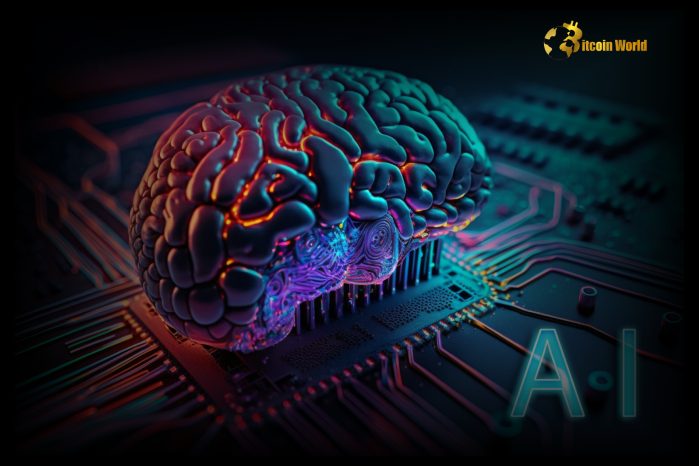About AI: What You Need to Know About Artificial Intelligence
Artificial Intelligence (AI) refers to the development of systems and machines that can simulate human intelligence. By using algorithms and data, AI enables machines to perform tasks like learning, problem-solving, decision-making, and natural language processing.
AI is revolutionizing industries such as healthcare, education, and finance, while also shaping the future with innovations like autonomous vehicles and personalized technologies.
What Is AI?
AI involves creating systems that can think, learn, and adapt, mimicking human cognitive abilities. It uses vast amounts of data and complex algorithms to process information and make intelligent decisions.
Core Functions of AI:
- Learning: Machines learn from data and improve their performance.
- Reasoning: AI systems analyze situations and make decisions.
- Self-Correction: AI optimizes processes through continuous improvement.
Types of AI
AI can be classified into three main categories:
1. Narrow AI (Weak AI)
- Designed for specific tasks, such as voice recognition or recommendation systems.
- Examples: Siri, Netflix recommendations.
2. General AI (Strong AI)
- Capable of performing any intellectual task that a human can do.
- Still a theoretical concept with ongoing research.
3. Super AI
- Envisioned as surpassing human intelligence, capable of creativity and autonomous thinking.
- Currently speculative and futuristic.
Applications of AI
1. Healthcare
- AI helps in diagnosing diseases, drug discovery, and robotic surgeries.
- Example: AI algorithms analyzing medical images for faster diagnosis.
2. Education
- Personalized learning platforms adapt to student needs, improving engagement and outcomes.
- Example: AI-powered tutoring systems like Duolingo.
3. Finance
- AI enhances fraud detection, credit scoring, and algorithmic trading.
- Example: Chatbots providing customer support in banking.
4. Transportation
- Autonomous vehicles and traffic management systems rely on AI.
- Example: Tesla’s self-driving cars.
5. Retail and E-commerce
- AI delivers personalized shopping experiences and efficient inventory management.
- Example: Amazon’s product recommendations.
How Does AI Work?
AI operates through:
- Data: Large datasets are processed to identify patterns and insights.
- Algorithms: Mathematical models that power AI systems.
- Machine Learning (ML): A subset of AI that enables systems to learn and improve without explicit programming.
- Deep Learning: An advanced ML method using neural networks to simulate human brain processes.
Advantages of AI
- Efficiency: Automates repetitive tasks and processes large amounts of data.
- Accuracy: Reduces human errors in critical areas like healthcare and finance.
- Innovation: Drives advancements in robotics, space exploration, and more.
Challenges and Ethical Concerns
While AI offers transformative benefits, it also presents challenges:
- Bias: AI systems can inherit biases from data.
- Privacy: Handling personal data raises concerns about security.
- Job Displacement: Automation could lead to job losses in certain sectors.
Future of AI
AI is poised to redefine industries and human life:
- Generative AI: Tools like DALL·E and ChatGPT create original content.
- Sustainability: AI monitors climate change and optimizes energy usage.
- Healthcare Innovations: AI could revolutionize drug discovery and patient care.
FAQs About AI
1. What is AI?
AI stands for Artificial Intelligence, the simulation of human intelligence in machines to perform tasks like learning and decision-making.
2. How is AI used today?
AI powers technologies like virtual assistants, self-driving cars, recommendation systems, and diagnostic tools in healthcare.
3. What are the benefits of AI?
AI enhances efficiency, reduces human error, and fosters innovation across industries.
4. What are the risks of AI?
Challenges include bias in decision-making, privacy concerns, and job displacement due to automation.
5. What is the future of AI?
AI is expected to drive advancements in generative content, autonomous systems, and personalized technologies.
Conclusion
Artificial Intelligence is transforming the way we live, work, and interact with technology. Its applications span industries, offering unparalleled opportunities for efficiency and innovation. While challenges remain, AI’s potential to shape the future makes it one of the most exciting fields of our time.
For further insights, explore AI’s Role in Modern Innovation and Society.
Disclaimer: The information provided is not trading advice, Bitcoinworld.co.in holds no liability for any investments made based on the information provided on this page. We strongly recommend independent research and/or consultation with a qualified professional before making any investment decisions.

